Apex Recovery Tennessee Accepts Insurance and
Offers Private Pay Options
At Apex Recovery Tennessee we are committed to delivering exceptional mental health care for individuals with or without insurance, offering tailored solutions to meet a variety of individual needs. With specialized behavioral health treatment programs for both inpatient mental health treatment and outpatient mental health care, our personalized care options address psychiatric challenges ranging from anxiety and depression to dual diagnosis conditions. We understand that the cost of mental health care can be a significant barrier, particularly for those navigating mental health without insurance. That’s why we prioritize transparency, making sure of access to essential support like mental health therapy sessions, and providing clear information about covering mental health medication costs through customized financial solutions.
To learn more about health insurance coverage for inpatient and outpatient mental health treatment or to explore private pay options, call us at (615) 703 4639. Apex Recovery Tennessee offers personalized care while helping you understand your financial options for mental health services.
What is a Private Mental Health Treatment Center?
A private mental health treatment center is a specialized facility offering comprehensive mental health support beyond what is commonly found in public care settings. Mental health care facilities often provide both inpatient and outpatient treatment options to address a variety of mental health conditions. Evidence-based approaches to mental health care often form the basis of treatment options for coping with mental health struggles in these health care support facilities.
Apex Recovery Tennessee specializes in private mental health care, delivering a blend of psychiatric support, stabilization programs, and tailored treatment plans. With modern facilities and a focus on high-quality care, Apex Mental Health Recovery supports patients in finding balance and recovery in a professional and nurturing environment.
What is a Dual Diagnosis Treatment Program?
A dual diagnosis treatment program addresses co-occurring mental health difficulties and substance abuse disorders (SUDs), which often overlap and intensify each other. Mental health treatment plans that focus on constructive therapy for both mental health issues and SUDs require an integrated approach. By combining therapies for both mental health problems and addiction recovery treatment, dual diagnosis plans aim to offer lasting results and ongoing care.
Apex Recovery Tennessee is experienced in dual diagnosis treatment, offering customized plans that simultaneously treat mental health disorders and substance addiction. With a team of experienced professionals and access to evidence-based therapies, Apex Mental Health Recovery provides patients with the tools to manage both of these serious challenges effectively.
Check Your Insurance with Apex Recovery
Apex Recovery accepts insurance and offers assistance in checking your mental health coverage levels. Knowing which programs your health insurance includes is a key step in receiving mental health treatment. Our experienced team is here to guide you through this process, making it easier to access the recovery treatments covered by your plan.
How Much Does Mental Health Treatment Cost Without Insurance in Tennessee
The cost of mental health treatment without insurance in Tennessee depends on the type of care you need. For inpatient rehab programs, expenses range from $200 to $1,000 per day or $6,000 to $30,000 per month. Outpatient care is generally more affordable, with daily costs between $70 and $334 or monthly fees from $2,000 to $10,000.
If you don’t have health insurance, Apex Recovery Tennessee offers private pay options to make treatment more accessible. Our team of experienced and caring professionals is here to help you explore financial plans that work for your situation. At Apex Recovery Tennessee, we are dedicated to supporting your mental health journey with compassionate care and flexible payment solutions.
How Much Does Mental Health Treatment Cost With Insurance Coverage?
With comprehensive insurance coverage, the cost of mental health treatment in Tennessee can be significantly reduced, often leaving you with minimal out-of-pocket expenses. For inpatient care, daily costs might range from $5 to $50, or $150 to $1,500 monthly. Outpatient treatment may cost as little as $3 to $20 per day, or $100 to $600 per month. These estimates are based on comprehensive insurance and may vary depending on your specific plan and coverage levels.
Apex Recovery Tennessee works closely with numerous insurance providers to design personalized treatment plans that align with your coverage. Our experienced team helps evaluate your benefits, identify cost-effective options, and ensure you maximize your savings. At Apex Mental Health Recovery, we are committed to compassionate and accessible care, tailoring our programs to meet both your mental health needs and financial considerations.
Free Mental Health Disorder Evaluation
Private Mental Health Treatment Centers in Tennessee That Accept Private Pay
For accessible, high-quality care, Apex Recovery Tennessee provides several mental health facilities across the state, offering expert inpatient and outpatient mental health services supported by our 24/7 professional care team Our locations include:
- Apex Recovery Brentwood: 209 Ward Cir, Brentwood, TN 37027
- Apex Recovery Columbia: 2710 Trotwood Ave STE A & B, Columbia, TN 38401
Behavioral Health Recovery Centers Near Me with Private Pay Options
Searching for a behavioral health recovery center in Tennessee that offer private pay options can be simplified by following these steps:
- Use Location-Based Online Searches: Search key phrases such as “mental health treatment cost in Tennessee” or “private pay behavioral health centers near Nashville” and it can provide results optimized to the specific location you’re looking for.
- Check Treatment Provider’s Tennessee Locations: Explore mental health support services available in locations such as Nashville, Brentwood, and Columbia to see accessible care options.
- Check if they Offer Inpatient or Outpatient Treatment: Determine whether short-term outpatient or long-term inpatient treatment options for mental health care are available based on your needs. Options could be verified by calling the provider.
- Check if they Use Evidence-Based Methods: Confirm that mental health treatments, such as cognitive-behavioral therapy (CBT) or dual diagnosis programs, are rooted in evidence-based approaches.
- Check If They Accept Health Insurance: Look into their partnerships with health insurance providers to minimize your out-of-pocket expenses.
How Much Does a Mental Health Assessment Cost?
The cost of a mental health assessment without health insurance can range from $150 to $500, depending on the provider. The fee typically covers a thorough evaluation by a licensed mental health professional to better understand your condition and recommend appropriate treatment options suitable for you. For more complex diagnostic assessments, costs may be higher.
At Apex Recovery Tennessee, you can start your treatment process with a free mental health assessment. Our professional services aim to provide you with a thorough mental health evaluation without financial barriers, helping you take the first step toward accessing high-quality care and support.
How Much Does a Psychiatrist Cost Without Insurance?
Going to see a psychiatrist without health care provision may cost $100 to $300 per session, with initial consultations often on the higher end of this range. Appointments, evaluations, and medication management are generally included in the fee. Additional costs for mental health treatment and medication prescriptions will generally incur additional costs.
At Apex Recovery Tennessee, we address these costs by integrating a team of dedicated healthcare advisors and experienced psychiatrists into our inpatient mental health treatment program. By offering transparent pricing and expert guidance, we strive to make high-quality psychiatric support accessible to everyone in The Volunteer State.
What is the Average Cost of Inpatient Mental Health Treatment Without Insurance?
The cost of inpatient mental health treatment without insurance could range from $10,000 to $60,000 per month. Pricing often depends on the level of care, length of stay, and amenities provided. Mental health care facilities that provide medically supervised care and specific therapy options typically charge more.
At Apex Recovery Tennessee, inpatient care plans are designed to meet a variety of coverage levels and personal needs. Whether you’re addressing substance addiction or another mental health concern, our team of professionals can work with you to create an individualized and well-rounded treatment plan.
Mental Health Assessment and Screening
What is the Average Cost of Outpatient Mental Health Treatment Without Insurance?
Outpatient mental health treatment without insurance typically costs between $1,000 and $10,000 per care plan. The overall price may well depend on session frequency, mental health treatment type, and the duration of the care plan. Individual therapy and group sessions might also influence the pricing structure within this range.
Apex Recovery Tennessee provides outpatient programs that are as functional as they are flexible. Through patient-centered planning, our experienced and accredited mental health team creates programs that adapt to your financial and treatment requirements, making recovery more accessible.
What is the Average Cost of Mental Health Treatment Medication?
The cost of mental health treatment medications depends on the specific prescription, dosage, and whether the drug is generic or branded. Daily costs may range from $1 to $50, translating to monthly expenses of $30 to $1,500. Additional related costs include psychiatry appointments, medication management, or therapy sessions.
Many health insurance plans cover mental health medications, and Apex Recovery Tennessee accepts most major insurance providers. If you are uninsured, affordable care options and transparent pricing can make it easier to plan the financial aspect of your treatment. Read on for our next sections on common medications and their associated costs.
Cost of Sertraline (Zoloft) for Depression, Anxiety, and PTSD Treatment
The cost of the medicine without insurance typically ranges from $7 to $60 for a 30-day supply, depending on the dosage and whether you purchase a branded or generic version of the medication. A generic version of Zoloft containing the same active ingredient of Sertraline could bring down the cost of mental health medication, making it more affordable while offering the same therapeutic benefits.
Sertraline is a widely prescribed medication for conditions such as depression, anxiety disorders, and PTSD. It belongs to the SSRI (Selective Serotonin Reuptake Inhibitor) class of medications, which work by balancing serotonin levels in the brain. It can help lessen symptoms like persistent sadness, panic attacks, and intrusive thoughts.
Cost of Fluoxetine (Prozac) for Depression and OCD Treatment
Fluoxetine costs approximately $4 to $35 per month for generic versions, while branded options such as Prozac may range from $50 to $130 without insurance. Costs typically depend on the dosage and the pharmacy’s pricing structure.
Fluoxetine is an SSRI commonly prescribed for depression and obsessive-compulsive disorder (OCD). It helps reduce the intensity of symptoms such as recurring negative thoughts, obsessive compulsions, and feelings of hopelessness. Its effectiveness and availability make it a preferred choice for many individuals seeking treatment for these mental health conditions.
Cost of Risperidone (Risperdal) for Schizophrenia and Bipolar Disorder Treatment
Risperidone (Risperdal) generally costs $8 to $50 monthly for its generic form, while various branded versions including Risperdal may range from $200 to $400 for the same period. The overall cost is often influenced by both the dosage and duration of the treatment.
Risperidone is an antipsychotic medication that treats schizophrenia and bipolar disorder by affecting dopamine and serotonin activity in the brain. It can help alleviate symptoms such as hallucinations, mood swings, and irritability, improving quality of life for patients with these conditions.
Cost of Olanzapine (Zyprexa) for Bipolar Mania and Psychotic Disorders
Olanzapine costs approximately $15 to $35 per month for its generic form, while branded options such as Zyprexa may range from $200 to $500 without insurance. The overall cost depends on the dosage and the particular pharmacy that it is sold at.
Olanzapine is an antipsychotic medication usually prescribed for dealing with bipolar mania and psychotic disorders, including schizophrenia. It can potentially work by stabilizing mood swings, reducing hallucinations, and improving clarity of thought, providing some relief to those struggling with these challenging conditions.
Cost of Lithium for Bipolar Disorder Mood Stabilization
Lithium typically costs between $10 and $50 per month in its generic form, while branded versions may range from $100 to $150. Prices could vary depending on the specific dosage and whether there are required catch-up sessions, such as regular blood tests.
Lithium is a well-known mood stabilizer for bipolar disorder, helping to prevent extreme mood swings and episodes of mania or depression. Its long-standing efficacy often makes it a treatment option for individuals managing bipolar disorder.
Cost of Valproic Acid (Depakote) for Bipolar and Mood Dysregulation
Valproic Acid (Depakote) costs range from $20 to $50 per month for generic versions, with branded options such as Depakote priced between $150 and $300. The overall costs incurred may differ based on particular dosage and treatment needs.
Valproic Acid can be prescribed for the seizures, migraines and the manic symptoms of bipolar disorder and mood dysregulation. It serves as a mood stabilizer by balancing certain neurotransmitters, helping to manage the mania, irritability, and erratic behavior that are often associated with these mental health conditions.
Cost of Lorazepam (Ativan) for Acute Anxiety and Agitation
The cost of Lorazepam (Ativan) without insurance usually ranges from $10 to $30 per month for generic options, while branded options like Ativan could go up to $100. As with all medications, the specific dosage and duration of usage will influence the overall cost.
Lorazepam is a benzodiazepine prescribed for acute anxiety, agitation, and panic disorders. It works by calming the nervous system, and providing quick relief from intense symptoms like nervous tension, severe restlessness, and irritability.
Cost of Zolpidem (Ambien) for Severe Insomnia in Psychiatric Patients
Zolpidem costs range from $10 to $40 per month for its generic version, and for the branded options, like Ambien, it can go up to $150 to $300. The full cost will depend on the dosage, the duration of use, and the pharmacy it is bought from.
Zolpidem is a sedative-hypnotic medication primarily used to treat severe insomnia, often in patients with underlying psychiatric conditions. By promoting better sleep patterns, it aims to help improve overall mental health and quality of life.
Cost of Methylphenidate (Ritalin) for ADHD and Executive Function Support
Methylphenidate (Ritalin) costs approximately $30 to $60 per month for generic options, while Ritalin and other branded versions may range from $200 to $300 or more. The total expense varies with dosage and extended-release formulations.
Ritalin is often prescribed for treating ADHD and executive function challenges. By working alongside executive function strategies, it can help raise dopamine levels to improve focus, attention, and impulse control in patients. .
Cost of Adderall (Amphetamine Salts) for ADHD Management
Generic amphetamine salts can range from $30 to $75 per month, while Adderall itself may cost up to $250 or more. Prices can vary based on dosage and whether extended-release versions are prescribed.
Adderall, a combination of amphetamine salts, is highly effective in managing ADHD symptoms. By enhancing the dopamine levels in the brain it aims to improve focus, retain concentration, and calm hyperactivity, making it a key treatment for many individuals with ADHD.
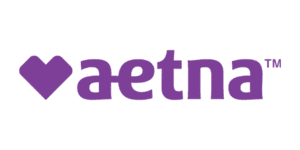
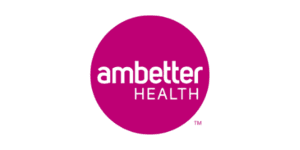
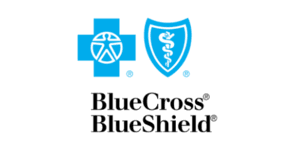
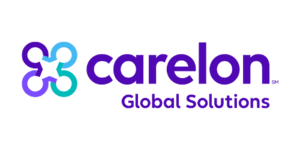
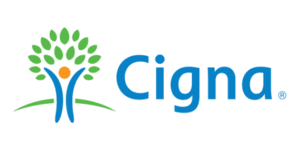
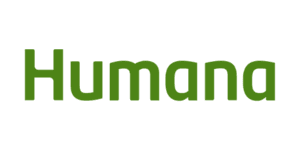

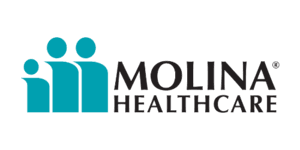
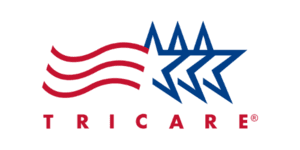

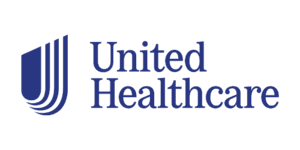
Check Your Health Insurance Coverage
"*" indicates required fields
How to Pay for Mental Health Recovery Treatment
Paying for mental health recovery treatment can often feel overwhelming, but there are several options available. Common payment methods for mental health treatment include insurance coverage, self-payment plans, financial assistance programs, and specialized financing solutions. Depending on the insurance provider, sliding scale fees or support may also help reduce costs for those with limited means.
Health insurance is the most widely used method for covering mental health treatment expenses. Many health care providers accept various insurance plans, and these often include partial or full coverage for mental health treatments like therapy, psychiatric care, and medication. It’s important to verify the extent of your benefits to avoid unexpected costs.
At Apex Mental Health Recovery, we work closely with individuals to identify suitable payment solutions. Our trained and caring staff can assist you in exploring your options and creating a financial plan that aligns best with your budget. Contact us today at (615) 703 4639 to discuss the various treatment programs and resources available to help you on your mental health recovery journey.
- The Community Mental Health Services Block Grant (MHBG) program provides funding to states, including Tennessee, to support community mental health services and these funds can be used to supplement private funding sources.
- 2% of people in Tennessee are uninsured.
- Tennessee allocated $103.5 million for mental health and substance abuse services in 2023, supporting programs like private residential treatment facilities to expand access to care
- In 2021, 6% of Tennessee adults with any mental illness in Tennessee were covered by private insurance, which frequently includes residential rehab programs.
- 3% of people in Tennessee in 2018/2019 experiencing mental illness had private health insurance cover.
